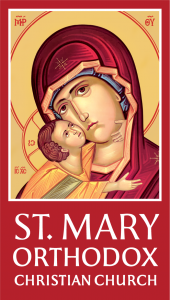A New Pharisaism
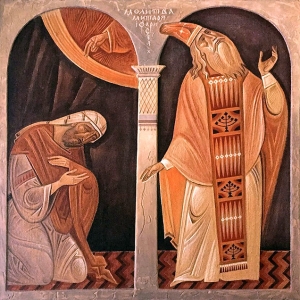 A New Pharisaism~By Metropolitan Saba (Isper)
A New Pharisaism~By Metropolitan Saba (Isper)
There is a negative trend in the Church these days, with certain people criticizing everything. They adhere in an extreme way to what they believe is authentic, while attacking all that they consider innovative, calling it heresy that destroys the Faith and the Church of Christ. The adherents of this trend tend to be aggressive in their attacks and fundamentalist in their opinions, denouncing as heretics all those who disagree with their opinions, views, and citations.
They employ the interpretation of Scriptures as they see fit, for their purposes. They adhere to the letter and not to the spirit of the text, neglecting what St. Paul said: “For the letter kills, but the spirit gives life” (2 Cor 3:6).
The Church was not born yesterday; her earthly age is 21 centuries. She has experienced all kinds of systems, situations, cultures, and heresies. The Church, through the power of the Holy Spirit, has always expressed her faith and steadfastly witnessed to it—even unto martyrdom—through different circumstances and pressures, wars and persecutions, peace and freedom, on top of intellectual, cultural, and religious or atheistic trends. According to the word of the Lord, “The gates of Hades shall not prevail against it” (Matt 16:18).
The followers of this new trend forget all the good and the benefits that the Church provides. They fail to see God’s acts in history and blind themselves from seeing how history works. Therefore, their responses come as brutal, hostile attacks, lacking the love that marks disciples of Christ.
They remain on the surface and do not dive into the essence of things, failing to differentiate between the essential and the superficial. They do not assign any importance to the changing course of history or the turning points of science and the challenges these pose. In their rigid view, humans are subject to requirements of the Faith according to their historical formulations, without regard to human capabilities and advances across generations.
They claim, for example, that churches should be built of stone. They argue that the life of the brick does not exceed one hundred years, which necessitates the demolition of the church building after the expiration of the brick’s effectiveness. They ignore the number of stone churches that were destroyed by the passage of time and by wars and earthquakes. They also forget churches that were turned into places of worship for other religions, or even into animal pens, due to their desecration and the disappearance of Christians from these places, as in northern and southern Syria.
These people are armed with the malleable phrase “according to the holy fathers” to support their opinion. If you ask most of them about their references, they cannot provide an answer. The phrase “holy fathers” has become a term used to defend and justify their positions, but often without knowledge or understanding. This happens with some Christian groups that cling to the letter of the Scripture while disregarding the living word of God that comes through the perpetual presence of the Holy Spirit in the Church of Christ.
According to these people, the Church must remain captive to expressions, systems, and traditions (and I do not mean “Holy Tradition”) formulated by the Spirit for a specific era, in order for the Church to express its faith among different languages and cultures. According to them, if the Church expresses something in some way at some time, then this expression must prevail at all times. The Holy Spirit, therefore, must stop working, according to these people, lest He invents something new, necessary, and beneficial for the salvation of man. Do you think that a person is saved through molds and forms, or through the Holy Spirit alive and effective in him?
In addition, you sense in them a fear for the upright faith, bordering on terror—to the point that it almost becomes a pathological obsession, seeing in everything a conspiracy against the Orthodox Church and the truth that it faithfully preserves. They believe that they are the only ones to preserve the truth, so they resort to strict adherence to the forms and calendars that the Church knew in the past, which were a successful expression of the upright faith in the cultures of that time. Writing the names of saints on icons in the local language becomes a heresy,
because the ancient Greek letters, in their view, alone are appropriate to the Orthodox art of the icon! They circulate a saying of Saint Nektarios, “Poor thing, Orthodoxy,” claiming themselves to be the defenders of Orthodoxy. Every effort in the Church, according to them, whether pastoral, institutional, or spiritual, is aimed at eliminating the faith and fragmenting the Church.
If these people poison the Church with a spirit of hatred, discord, blasphemy, and hostility toward every leader, guide, and spiritual father who does not say what they say, then they miss seeing themselves as a tool of Satan, who is targeting their Church. Truly, this is his murkiest trap. He abuses the naivete of some Church members to split it. They fall under the delusion that they are cleansing it.
Faithfulness is required of all believers. You may differ with your brethren regarding matters unrelated to doctrine. We prevent fracture with continual love, humility, and dialogue. However, to monopolize Christ, appoint yourself as His spokesman, and break from His true Church to establish what you want His Church to be means that you have sunk to a level of pride that makes you a tool in the hands of Satan.
Truly, this is the greatest sin.
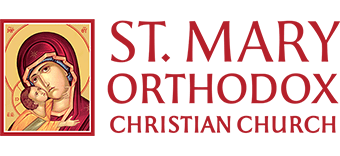
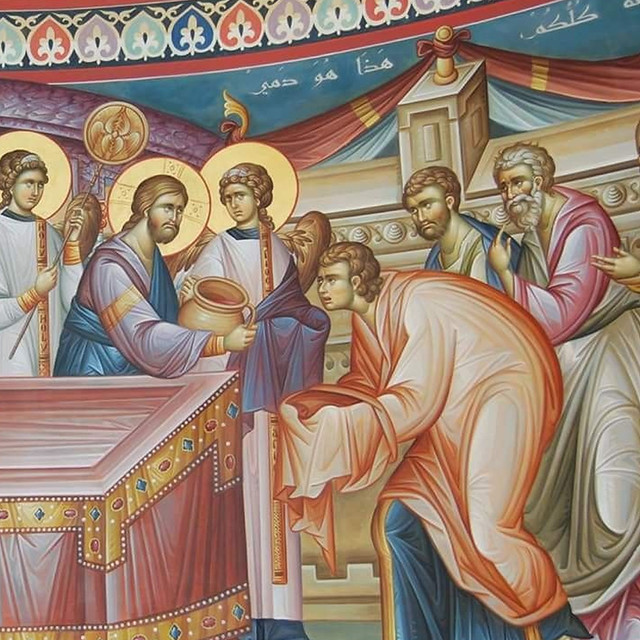 (
(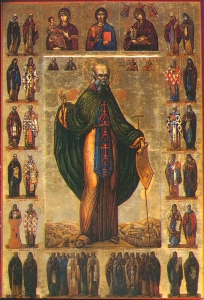 December 5: Venerable Saba the Sanctified
December 5: Venerable Saba the Sanctified